If you are visiting Japan for the first time, you might be overwhelmed by the variety of delicious dishes available. Japanese cuisine is more than sushi and ramen – it’s a reflection of the country’s history, seasons, and regional traditions.
As a Tokyo-based travel blogger who has visited 42 of Japan’s 47 prefectures, I’ve tasted countless local specialties. Here are my top 10 must-try Japanese foods, along with tips on where and how to enjoy them like a local.
What Makes Japanese Food Special?
A Brief History of Japanese Cuisine
Japanese cuisine has evolved over centuries, influenced by both domestic traditions and foreign cultures. Early Japanese food was shaped by rice cultivation, the use of seasonal ingredients, and cooking methods like grilling, steaming, and fermenting. Later, influences from China, Korea, and the West introduced noodles, tempura, and curry, which have become staples in Japanese dining.
Regional Diversity in Japanese Dishes
Every region in Japan has its own culinary specialties. Hokkaido is famous for fresh seafood and miso ramen, while Osaka is known for its street food like takoyaki and okonomiyaki. Kyoto offers refined kaiseki meals, and Okinawa boasts unique dishes influenced by Southeast Asia.
It amazed me how sweet the scalloped were when I ate them at morning market in Sapporo, Hokkaido! Also, I love trying local foods and traditional regional dishes in each area of Japan.
The Role of Seasonality in Japanese Food
Japanese chefs emphasize shun—the idea of eating ingredients at their peak season. Seasonal menus change throughout the year, showcasing cherry blossom-themed sweets in spring, cold noodles in summer, and hearty hotpots in winter.
Fruits are breath-takingly great in Japan, especially on season.
- Strawberries – Tochigi, Fukuoka, etc
- Grapes – Yamanashi
- Melon – Ibaraki
10 Japanese Foods You Must Try
Sushi & Sashimi – The Most Famous Japanese Food

Sushi is probably the first food that comes to mind when you think of Japan. While you can find sushi worldwide, nothing beats eating it in Japan – especially at a local fish market or a small neighborhood sushi bar.
Nigiri
Outside Japan, I have seen so many kinds of sushi rolls though, you will not find any rolls like “California roll” in Japan. Basically, we have very simple rolls like “Kappa maki (cucumber roll)”, “Kanpyou maki”(raddish roll), and so on.
Most of places, you will see they have Nigiri, and I would like you to try them. Salmon, Maguro (tuna), Hamachi (yellowtail) might be easy to try.
Kaiten Sushi (belt conveyer)
There are also a lot of Kaiten sushi restaurants in Japan. The range of price is pretty wide, actually.
My favorite Kaiten sushi place is called “Midori Sushi” where you can have a good quality of sushi with a bit cheap price. And it is a kind of a casual restaurant so that you don’t need to worry about manners for sushi that much.
Sashimi
If you are on your diet, or you don’t want to eat carbs, then you can just try Sashimi. You can taste of fish itself from Sashimi. Some of you might feel its strong taste, but I hope you enjoy fresh raw fish in japan.
Best Sushi Restaurant in Shibuya
Ramen – Japan’s Comfort Food in a Bowl
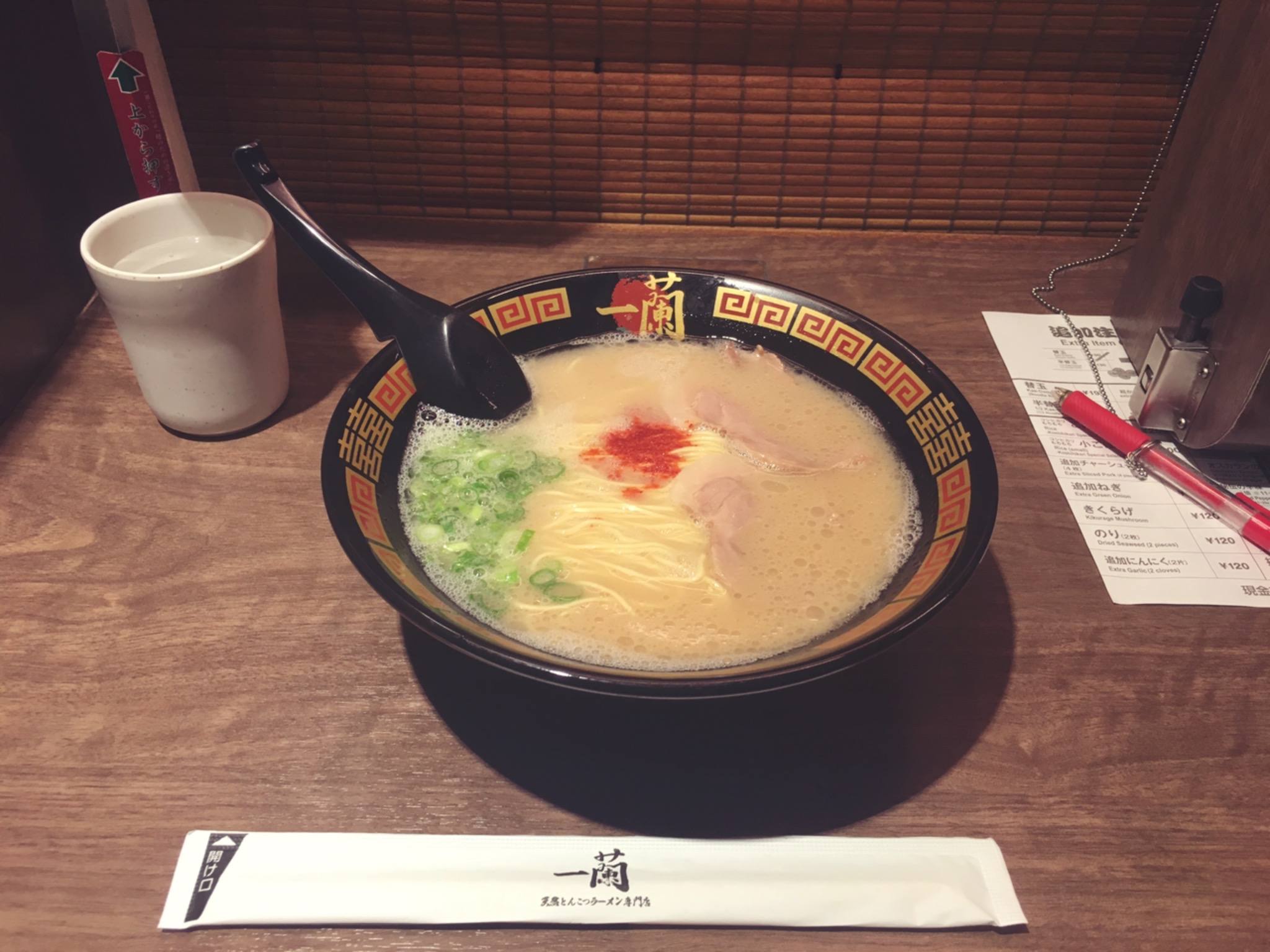
Ramen is originally from China, but it is completely different. Even inside Japan, each region/area has different taste of soup, ingredients, noodle, and etc!
From miso ramen in Hokkaido to tonkotsu ramen in Fukuoka, every region has its own version. The rich broth, chewy noodles, and unique toppings make ramen a comfort food for locals and travelers alike.
If you are ok with pork, I’d recommend you to try Ichiran, where my friends from Taiwan, Germany, France, USA, etc loved.

Tempura – Crispy Perfection from Seafood to Vegetables

Tempura is deep-fried seafood and vegetables coated in a delicate batter. Despite being fried, it’s surprisingly light. Tempura showcases seasonal ingredients. You can find Tempura of veggies like sweet potato, eggplant, Kabocha(pumpkin), Shishito pepper (spicy green bell pepper), and also fish, most popularly shrimp.
Served with dipping sauce with graded Daikon radish or sprinkled with salt, tempura is best enjoyed fresh from the fryer.
Tempura goes well with Udon noodle and/or Soba noodle!
Okonomiyaki – The Japanese Savory Pancake

This “as-you-like-it” pancake – a mix of batter, cabbage, and toppings, cooked on a hot griddle – is made with cabbage, batter, and various toppings like pork, seafood, or cheese. Kansai (Osaka) and Hiroshima have their own distinct styles.
Hiroshima style Okonomiyaki
It’s layer of thin-batter, cabbage, other vegetables, pork (or shrimp, oyster, etc), noodle, egg, sauce..
My favorite Hiroshima style Okonomiyaki restaurant is “Mitchan” that is originally from Hiroshima.
Osaka style Okonomiyaki
They mix with batter and veggies before they cook, so it looks like a pancake. I personally like Hiroshima style though. Let me know which style you like if you have tried!
Yakitori – Grilled Skewered Chicken and Street Food Vibes

Yakitori is a popular street food and izakaya dish. Skewered chicken pieces are grilled over charcoal and seasoned with either salt or a sweet soy-based sauce.
Usually you can choose “Shio” = salt or “Tare” = sauce. Sauce shows each store’s uniqueness. Sweet at Some places, it’s sweet, and more salty at other places, and etc. I like to order “Shio”, but I’d try “Tare” when visiting new places.
My favorite Yakitori place in Tokyo is Gonpachi. I also like to try it on the street.
Kaiseki – The Art of Fine Dining in Japan
Multi-course meals that are as beautiful as they are delicious.
Usually people eat Kaiseki for special occasions, like celebrations and formal events.
Udon & Soba – The Noodle Staples of Japanese Cuisine

Served hot or cold, they vary by region.
Kagawa prefecture is famous for Udon. You can try Marukame (they have multiple location) anywhere in Japan.
Nagano, Fukui, Shimane, Niigata, and Iwate are known for good Soba noodle. I like ;
- Issa-an from Ashikaga,Tochigi
- Kawakami-an from Karuizawa, Nagano ( I went the one in Tokyo )
Fan fact ; We have a culture to eat Soba noodle for dinner on December 31st! Check out Toshikoshi Soba
Konbini Food from Convenience Store

Have you ever heard that Japanese convenience store is very different from ones in other countries?
I totally agree with that since I personally dont go to any convenience store in US without I have to for some reasons, and i miss them so much!
Although, I used to stop by those stores very often in Japan.. on my way home from station, for getting food for my lunch during work, running for printing some documents, paying bills, buying tickets, getting some cash from ATM and etc.
It is LITERARY convenience store for me!
Onigiri – Rice ball
It is a rice ball, and there are some without seawood around it in case you don’t like it. It is super easy to fill up your stomach,
Sandwich – Egg salad Sandwich, Pork/Chicken Cutlet Sandwich

My recommendation is Tonkatsu = Pork Cutlet sandwich! Chicken or pork cutlet between thin bread. Generally, there are sauce, some lettuces, and mustard as well.
Wagyu Beef – Japanese Beef
In my opinion, Japanese wagyu is the BEST!!!! You should try a real one in Japan, not like “US-Wagyu” or something like that.
Wagyu Steak
Simply it is the best way to eat, don’t you agree with me? 😉 I personally love to go to the Teppanyaki restaurant (Hibachi restaurant, is that American often call it) at Teppanyaki Restaurant Yebisu at Westin Hotel in Ebisu. But just on special occasion since it is not cheap, of course.
Normally, just go to Wagyu restaurant for lunch. or Yakiniku (grilled meat) place, etc.
Wagyu Dish
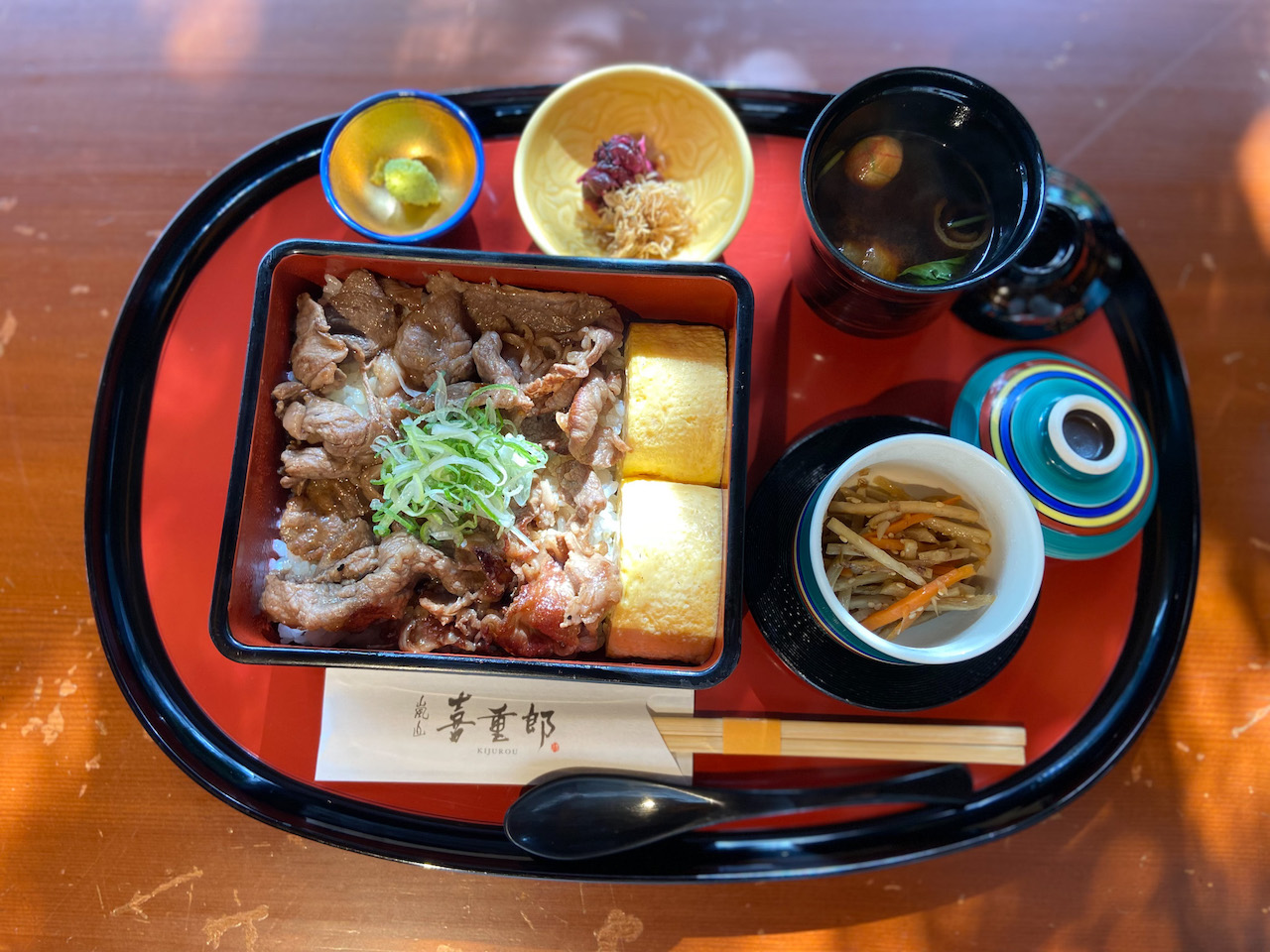
There is a great restaurant called Kijuro in Arashiyama, Kyoto, where you can have a great dish with a nice vibes!

Niku sushi

Niku means “Meat”
I love Wagyu Niku sushi which is wagyu beef on top of rice (sushi style) instead of fish. Some places serve you a sliced of seared meat on top of rice, but others might serve you a raw beef on it. I wouldn’t recommend you to eat raw beef if you haven’t eaten it before, or you might get a stomachache or being sick.
Japanese Sweets and Matcha
Personally I love sweets! We have many delicious sweet in Japan!!
Japanese style Soufflé Fluffy Pancake
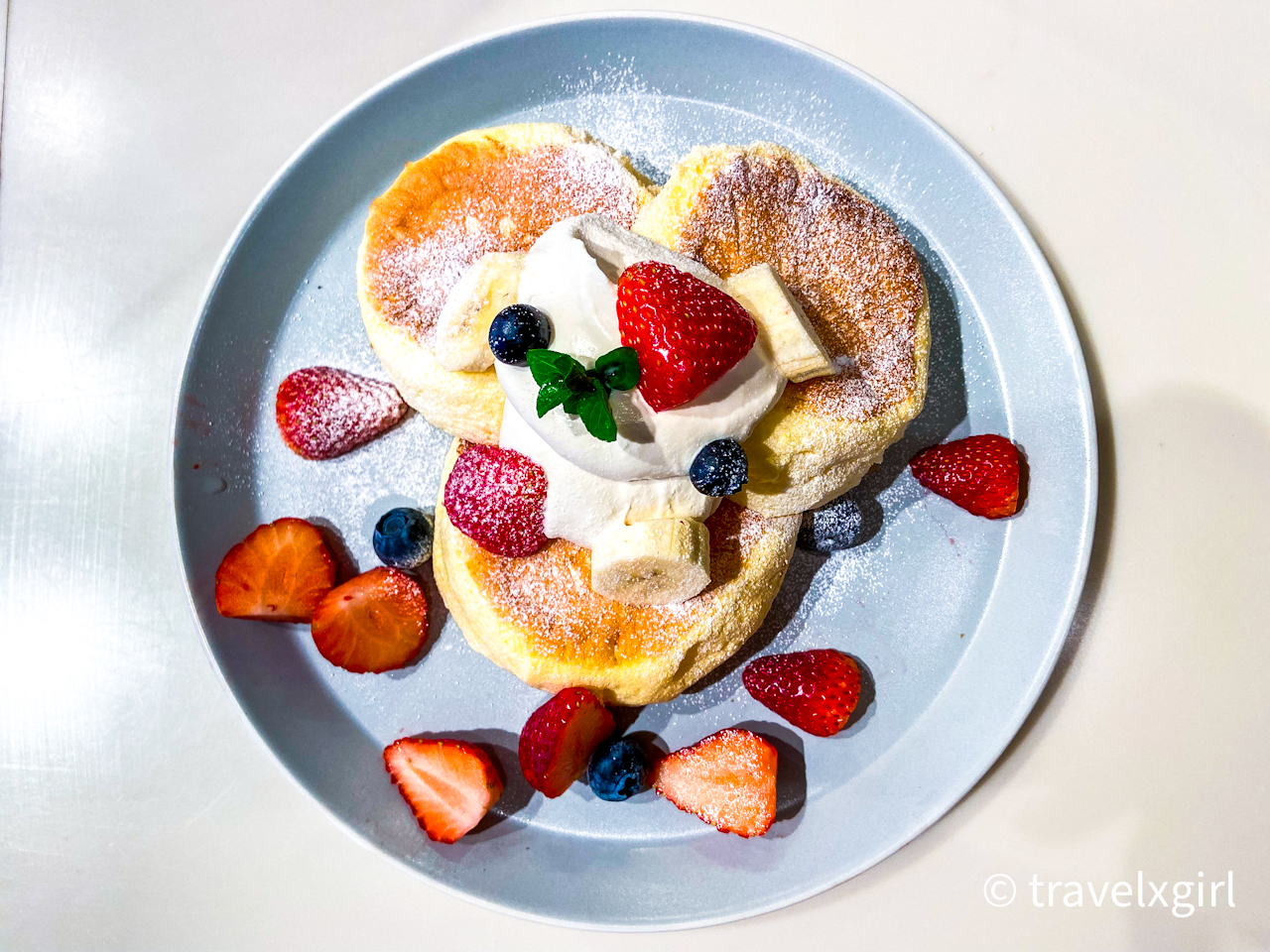
It is sooooo fluffy and it melts in your mouth!
Wagashi – Japanese Traditional Confessionary
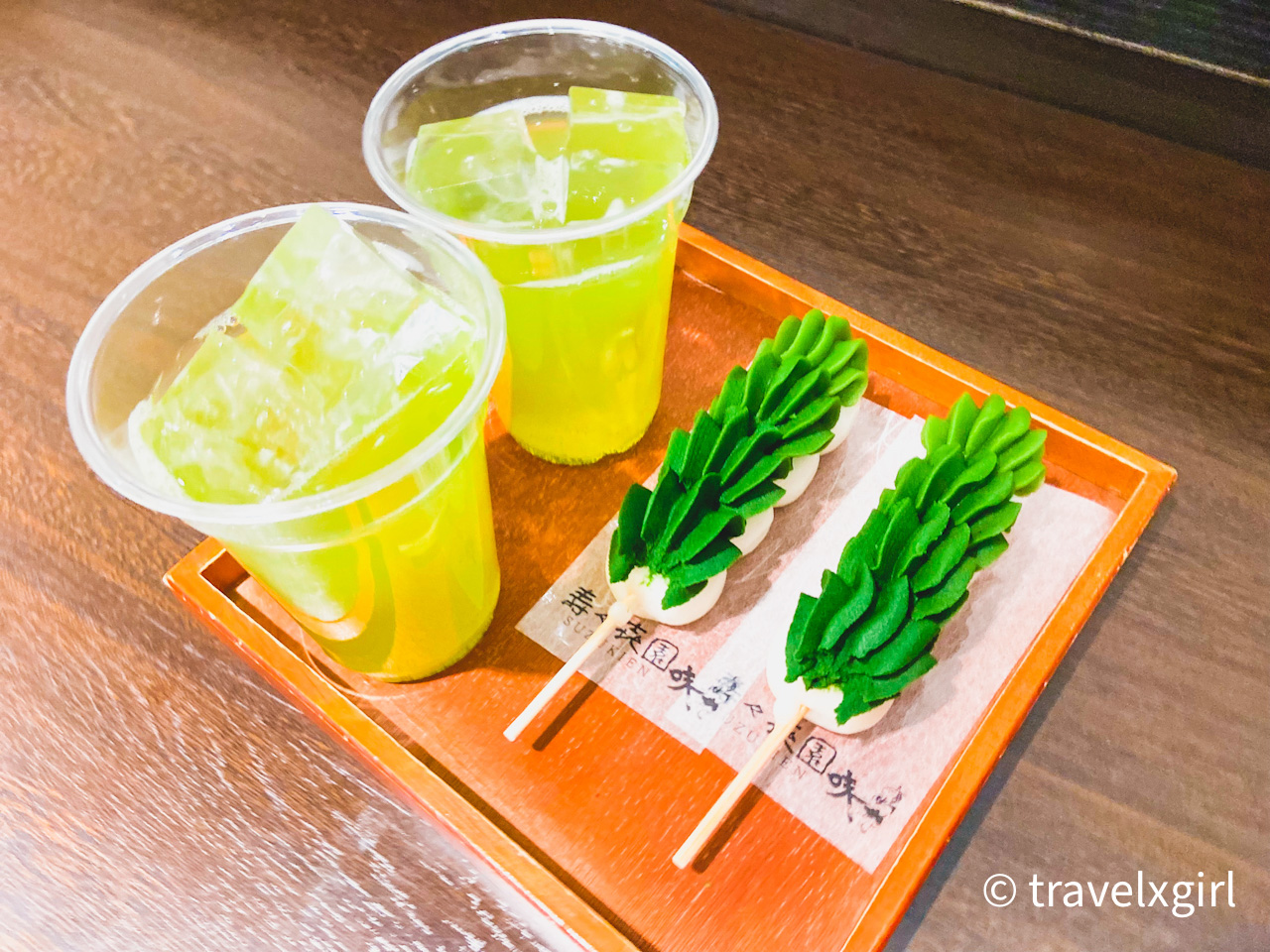
Beautifully crafted confections often enjoyed with tea.
There are many kinds of Wagashi. Mochi, Dango (Rice cake ball on a stick), Daifuku, etc. It’s often used Anko, that is sweet bean paste.
Matcha – Japanese Green Tea
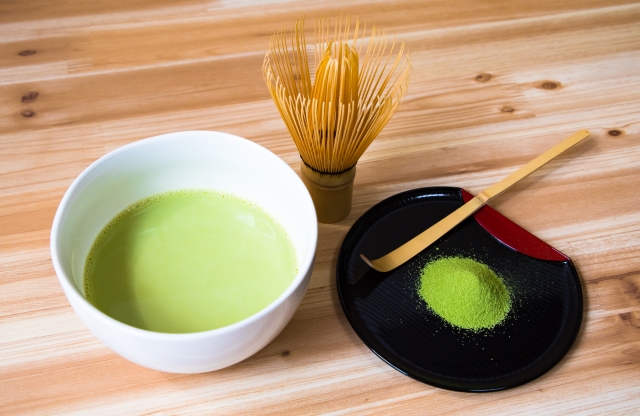
Matcha is not just a drink – it’s also used in desserts like ice cream, cakes, and traditional sweets. Its slightly bitter taste pairs perfectly with sweet treats.
Where to Eat Authentic Japanese Food in Japan
Street Food Markets
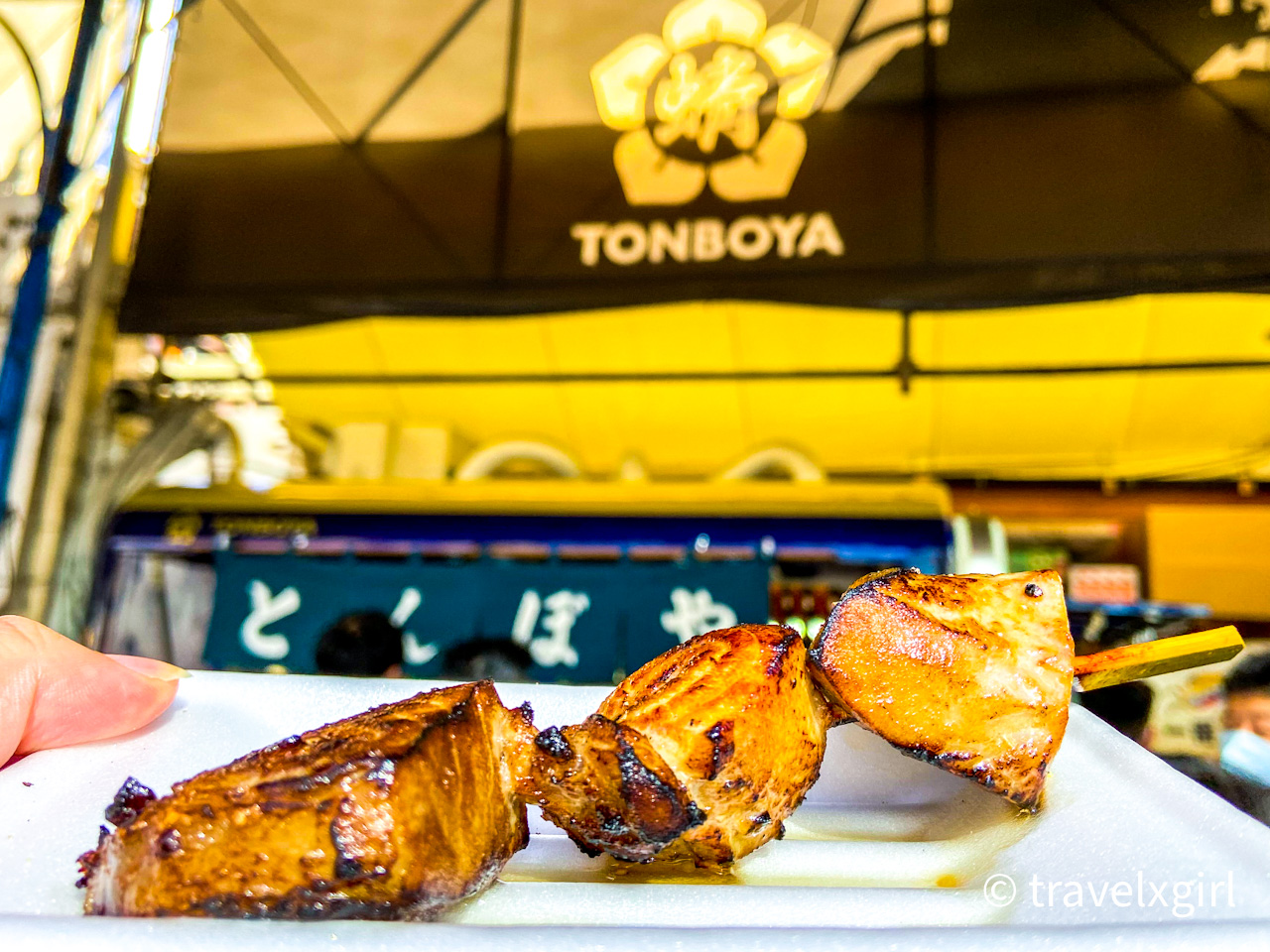
Great for sampling multiple dishes in one place. There are some spots and I wrote best foods in each place below;
Family-Owned Restaurants
Cozy, authentic, and often the best-kept secrets. I often go find family-owned restaurants when I travel. It’s a good idea to ask local people including cab drivers!
Michelin-Starred Japanese Restaurants
For special occasions and the highest quality. You can also try “Michelin Bib Groumand” that offers great food with reasonable price.
Here are some Bib groumand Restaurants that I love;
Cristiano’s (Portuguese) – Tokyo is where you can enjoy Portuguese dishes and wines! The dinner course including paella was amazing at Arrocería Sal y Amor (Spanish) – Daikanyama, Tokyo. For fresh/chewy Udon with crunchy Tempura, Udon Miyoshi – Kamakura, Kanagawa is a great place to go.
Tips for Enjoying Japanese Food Like a Local
Table Manners and Chopstick Etiquette
I explained this on another article. Check this below.

Seasonal Recommendations
Spring
Strawberries are great, i like Tochi otome from Tochigi and Amaou from Fukuoka. Also, anything Matcha!
Summer
Cold noodle, like Udon and Soba are nice in a hot day. Shaved Ice with fresh fruits sauce is great.
Autumn
I’d recommend sweets made with Chestnut, Sweet potatoes, and pumpkins!
Winter

Nabe (Hot Pot) is a great option in winter! Shabu Shabu, Sukiyaki, as well.
Words and Phrases to Use When Ordering
- Itadakimasu – thank you for the food, or bon apetit! (before eating)
- Osusume wa Arimasuka ? – is there any recommendation?
- Gochisou Sama Deshita – thank you for the food (when finishing eating)
Japanese Food FAQs
Is Japanese Food Healthy?
Generally low in fat, with lots of fresh vegetables and fish. I eat high calories food but also try to eat well-balanced by adjusting dishes for a couple of days.
Vegetarian and Vegan Options

Options are growing, especially in big cities. For lunch, I recommend a vegan plate at Brown Rice in Omotesando.
For dinner, I love Tofu Kaiseki at Ukai at Shiba area. It’s close to Tokyo tower!
Where to Try Japanese Food Abroad
Japanese restaurants can be found worldwide, but the taste may differ.
I’ve lived in some cities in USA, and I tried Sushi in some restaurants there. For me, honestly Sushi at the restaurants run by a Japanese owner usually tastes great to me.
Sushi Restaurant named Sushi Ota in San Diego was great.
Final Thoughts – Why Japanese Food is Worth the Trip
Japanese food is deeply connected to the country’s culture, geography, and seasons. Whether you’re eating at a high-end restaurant or from a street food stall, each dish has its own story.
On your next trip to Japan, go beyond the familiar and explore these delicious flavors – your taste buds and your belly will thank you.











